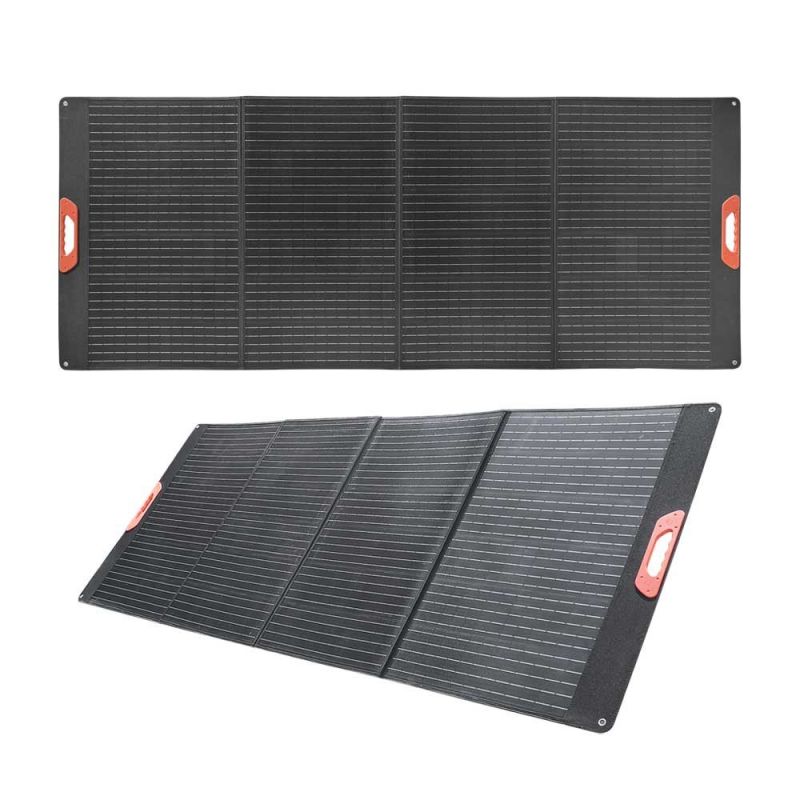In today’s era of pursuing sustainable energy, solar energy, as a clean and renewable energy source, is playing an increasingly important role. The emergence of folding solar panels has brought new breakthroughs and convenience to the application of solar energy. Folding solar panels, as the name suggests, are solar panels that can be folded up. Their design cleverly solves the limitations of traditional solar panels in terms of portability and space utilization. Next, let¨s take a closer look at the significant benefits of folding solar panels and how they generate electricity.Besides, we can’t ignore. portable solar panel It has injected new vitality into the development of the industry and has far-reaching significance for activating the market. https://www.supasolarpanel.com
1. Advantages of folding solar panels
.Portability
One of the biggest advantages of folding solar panels is their excellent portability. Take a common folding solar panel as an example. When unfolded, the area is about 2 square meters, but after folding, it can be easily stored in a backpack-sized space, and the weight is usually around 5-10 kilograms. This makes it very suitable for outdoor enthusiasts, campers, hikers, etc. to use in wild environments, providing reliable energy guarantee for charging electronic devices.
. High efficiency
Despite their relatively small size and foldability, fo
ldable solar power are no less efficient in generating electricity. Modern folding solar panels usually use high-efficiency monocrystalline silicon or polycrystalline silicon cells, with photoelectric conversion efficiencies of up to 20% – 25%. This means that under ideal lighting conditions (light intensity of 1000 watts per square meter), a 2 square meter folding solar panel can produce 400 – 500 watts of electricity per hour.
. Flexibility
The design of folding solar panels makes them highly flexible. It can adjust the folding angle and method according to different usage scenarios and needs to maximize the reception of sunlight. For example, when installed on the top of a vehicle, the orientation of the solar panel can be flexibly changed according to the driving direction of the vehicle and the position of the sun, thereby improving power generation efficiency.
∠. Durability
In order to adapt to various complex usage environments, folding solar panels are usually made of strong and durable materials. Its surface is usually covered with high-strength tempered glass or impact-resistant polymer materials, which can effectively resist the influence of external factors such as wind, sand, rain, and impact. At the same time, a good sealing design can also prevent water vapor and dust from entering, ensuring the long-term stable operation of solar panels. Generally speaking, a good quality folding solar panel will last 10-15 years.
⊥. Quick installation and disassembly
Unlike traditional solar panels, which require complex installation processes, portable solar panels are very easy and quick to install and remove. It usually only takes a few simple steps to unfold and secure it in place, eliminating the need for specialized tools and technicians. This makes it possible to quickly set up temporary energy supply systems in emergencies.
portable solar panels.jpg
2. Power generation of foldable solar panels
To understand how well folded solar panels generate electricity, there are several factors to consider. The intensity of solar radiation varies greatly in different regions. For example, in my country, Tibet, Qinghai and other places have high solar radiation intensity due to their high altitude and thin air. The annual average can reach 1800-2000 kilowatt hours per square meter. In the eastern coastal areas, the annual average per square meter is around 1,000 – 1,500 kWh. Seasons and weather have a significant impact on the power generated by solar panels. In summer, the sun’s altitude angle is larger, the illumination time is longer, and the power generation efficiency is usually higher. In winter, as the sun’s altitude angle becomes smaller and the lighting time shortens, the power generation will decrease accordingly. In addition, weather conditions such as cloudy days and rainy days will cause light intensity to weaken, thus affecting power generation. Generally speaking, the amount of electricity generated on a sunny day is 3-5 times that on a cloudy day.
Correct installation angle and orientation are crucial to improving the power generation efficiency of folding solar panels. In the Northern Hemisphere, solar panels receive maximum sunlight when they are oriented due south at an angle to the ground (usually local latitude plus 10< – 15<). For example, in Beijing (about 40< latitude), solar panels are installed at an angle of about 50< – 55<. If the installation angle and orientation are unreasonable, power generation may be reduced by 10% – 30%.